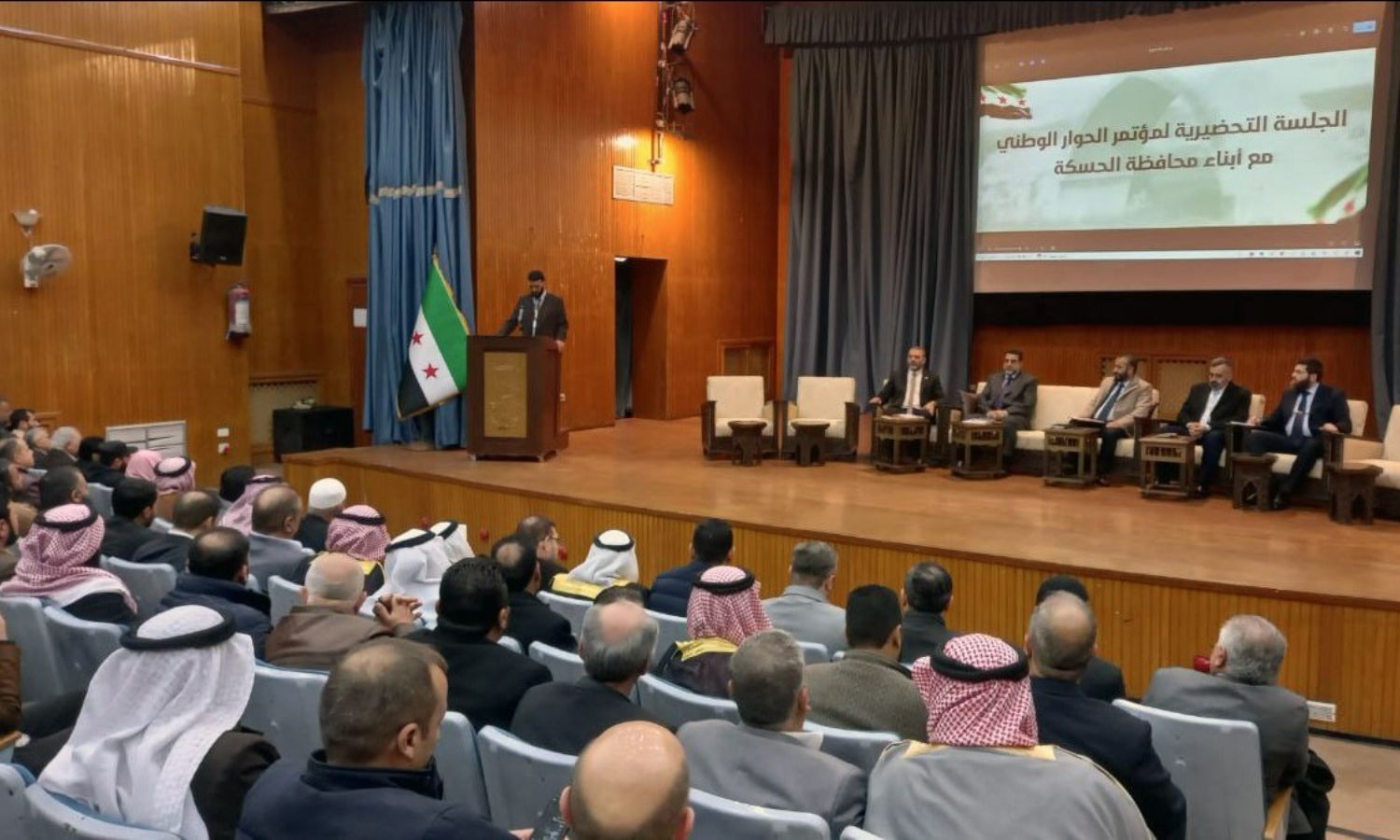As Syria moves toward its much-anticipated National Dialogue Conference, deep divisions over representation, inclusivity, and governance reforms have raised concerns about its legitimacy. While the dialogue has the potential to reshape Syria’s political landscape, its success depends on whether it brings about genuine reform or merely preserves the status quo.
Essential Criteria for a Meaningful Dialogue
Columnist Hassan Al-Aswad (Al-Araby al-Jadeed) argues that the Preparatory Committee has the flexibility to make this conference a defining moment for Syria’s new era, breaking away from decades of political exclusion that began with the dissolution of political parties in 1958 and was reinforced by the Baathist coup of 1963. However, if the process remains superficial, it risks betraying the aspirations of Syrians who have long fought for political transformation.
To ensure genuine inclusivity, the selection of participants must be based on merit and expertise rather than sectarian or ethnic quotas. Key selection criteria should include:
- Professional qualifications in reconstruction and governance
- Public credibility and civic engagement
- Diverse community representation
- Policy innovation and reform advocacy
- Integrity, transparency, and ethical political standing
Achieving gender parity is also critical, ensuring women play a substantive role in shaping Syria’s future rather than being given symbolic representation. Additionally, a balanced mix of domestic and diaspora participants is essential, as Syrians inside the country have firsthand experience with daily hardships, while exiled Syrians bring insights from international governance models.
Beyond Symbolism: The Need for Binding Resolutions
One of the biggest concerns is whether the National Dialogue Conference will produce legally binding outcomes or simply non-enforceable recommendations. For the dialogue to mark a true turning point, it must secure commitments on:
- State structure and governance reforms
- Power distribution and political representation
- Judicial independence and the separation of powers
- The role of women and youth in political life
Without clear mechanisms for implementation, the conference risks being a political exercise with no real impact, leaving Syria’s transition to democracy unrealized.
Contentious Issues and Exclusion of Key Actors
Preparatory meetings across Syria have exposed deep political rifts, particularly regarding the exclusion of Kurdish factions and concerns over participant selection.
In Daraa, participants called for the establishment of a human rights body to monitor prisons and trials, ensuring accountability for past abuses. They also pushed for constitutional reforms, including presidential term limits and criminal courts to prosecute war crimes from all sides. However, concerns arose over the selection process, with critics arguing that it was based on quotas rather than qualifications.
Meanwhile, the Kurdish National Council (KNC) condemned the exclusion of Kurdish-majority areas under the Autonomous Administration of North and East Syria (AANES), warning that marginalizing Kurdish political actors weakens the credibility of the entire dialogue process.
Tensions Over Hassakeh and SDF’s Exclusion
Representatives from Hassakeh met in Damascus after the Preparatory Committee was unable to visit the province due to Syrian Democratic Forces (SDF) control. They demanded the restoration of government authority, viewing SDF rule as illegitimate.
Committee member Hassan Al-Daghim confirmed that factions advocating separatism, including the SDF, were not invited, arguing that the group remains a military entity outside state control. This exclusion has sparked backlash from Kurdish leaders, including Salih Muslim (PYD), who accused the committee of serving specific political interests rather than ensuring fair representation.
SDF spokesperson Farhad Shami rejected the framework, warning that any dialogue excluding the SDF lacks legitimacy and risks repeating the same exclusionary policies that fragmented Syria in the first place.
An Uncertain Future
With the National Dialogue Conference fast approaching, unresolved disputes over inclusivity, governance reforms, and power-sharing cast a shadow over its effectiveness. While broad agreement exists on issues such as transitional justice and constitutional reform, the lack of meaningful representation threatens to undermine reconciliation efforts.
For now, the future of the dialogue remains uncertain, with major questions looming over who will shape Syria’s political future and how decisions will be implemented. Without real commitments and enforceable reforms, the conference risks becoming another missed opportunity for meaningful change.


